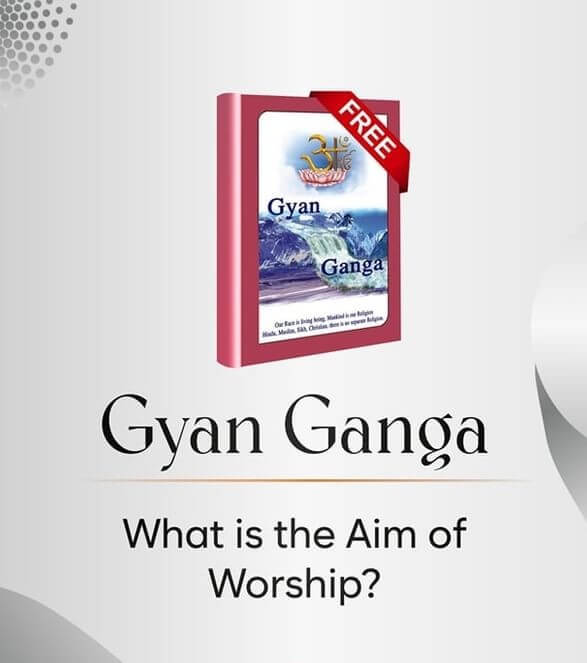Only Ignorant People Worship Other Deities
The Revelation of True Knowledge / Only Ignorant People Worship Other Deities
Only Ignorant People Worship Other Deities
Only Foolish People Worship Other Gods (Rajgun Brahma Ji, Satgun Vishnu Ji, and Tamgun Shiv Ji)
In Chapter 7, Verse 20 of the Gita, following the idea in Verse 15, it is stated that those whose knowledge has been hijacked by Trigun Maya (focused only on the worship of Brahma, Vishnu, and Shiv for temporary gains) are low-minded, demoniac, evil-doers, and fools who do not worship Brahm.
Verse 20 adds that due to material desires, their wisdom is stolen, and they, driven by their own nature, worship other gods, ruled by ignorance.
In Verse 21, it is said that whatever god a devotee wishes to worship, Brahm makes their faith in that god firm.
Verse 22 explains that with that faith, the devotee worships the god and receives the desired benefits, but only as granted by Brahm. Similar to a chief minister giving powers to lower officials, Brahm provides limited benefits to those who worship gods under his rule.
However, in Verse 23, it is clarified that the rewards obtained by these worshippers are temporary. Those who worship gods go to those gods, but the wise devotees (Madbhakt), who follow the true Vedic path of worship, reach Brahm (Kaal), but remain within his trap.
Important: Verses 20 to 23 explain that whatever sadhna (worship) people perform for ancestors, spirits, or gods/goddesses is influenced by Brahm (Kaal), who directs them towards these deities. Although they receive benefits through these gods, such worship will ultimately lead them back into the cycle of 84 lakh life forms. Even worshipping Brahm leads only to his realm, Tapatshila or Great Heaven (Brahmlok), where souls eventually return to the cycle of birth and death without attaining liberation.
Brahm's sadhna is more beneficial than that of other gods, but it still doesn't provide complete salvation. Devotees who reach Great Heaven may stay for one Mahakalp (a long age), but after enjoying heavenly pleasures, they will still suffer in hell and other lives. There is no complete escape from Kaal's cycle.
Other Evidence:
Both the Holy Gita and the Holy Vedas prohibit the worship of other gods, ancestors (pitra), and ghosts, forbidding rituals like shradhs, offering ashes, pind, or worshipping statues.
← Trigun Maya hinders a soul's liberation The Result of Vedic Worship is Heaven, Not Salvation →
